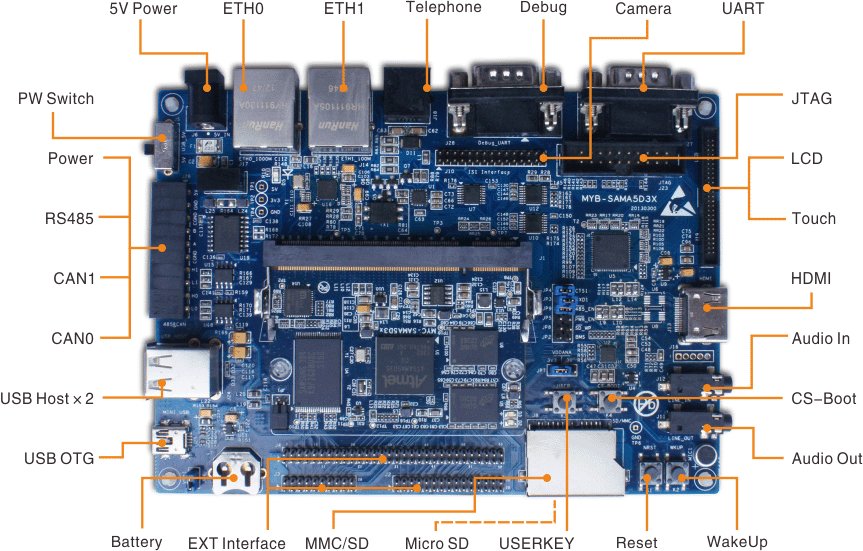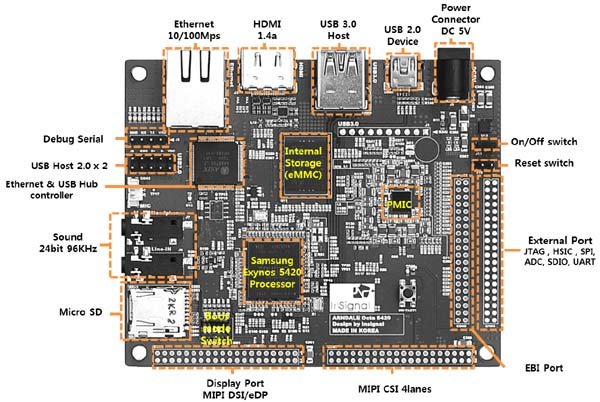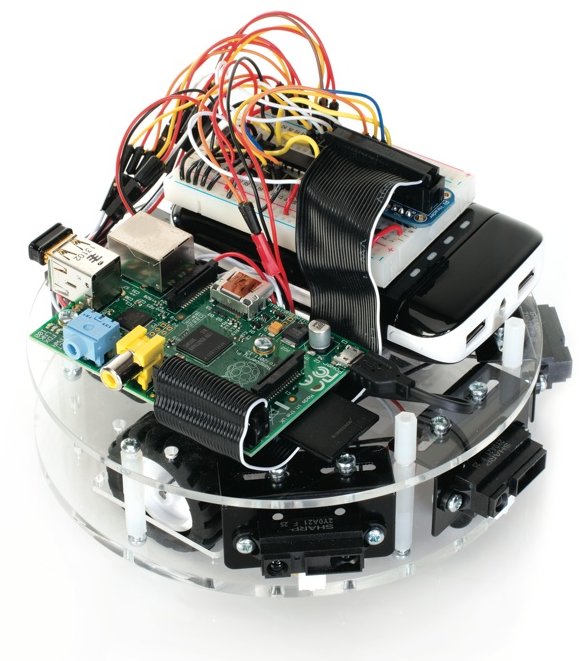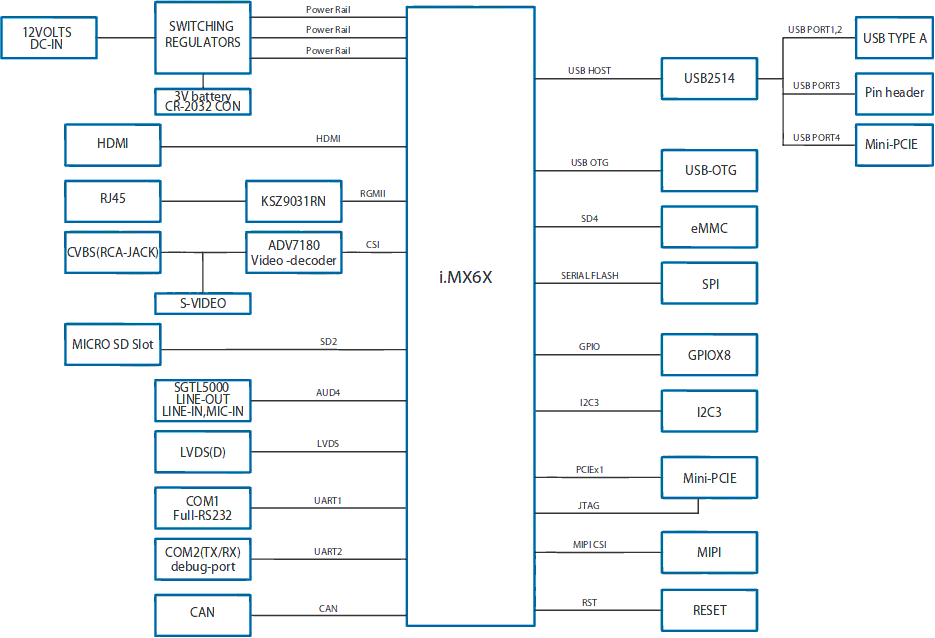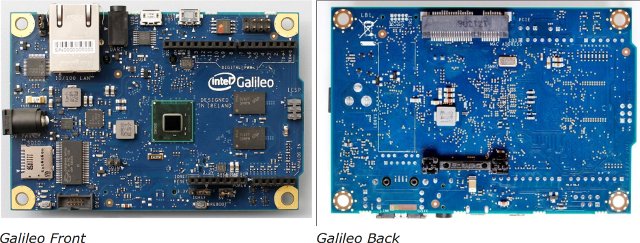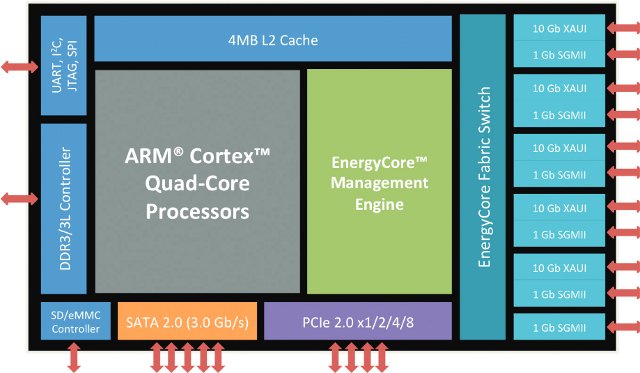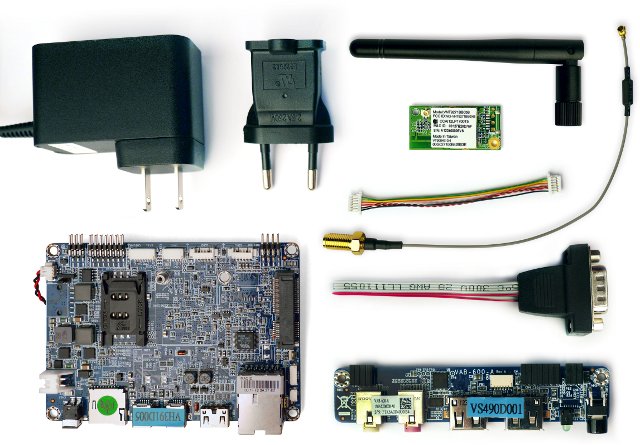MYIR Tech, a company based in Shenzhen, and ARM Connected Community Member, has recently made available MYD-SAMA5D3X boards powered by Atmel ATSAMA5D3 ARM Cortex-A5 embedded MPU. Like many development boards, thise are composed of a baseboard coupled by a 200-pin SO-DIMM computer-on-module (CoM) featuring one of the four Atmel SAMA5D3 processor: SAMA5D31, SAMA5D33, SAMA5D34 and SAMA5D35. The boards all feature 512MB DDR2 SDRAM, 256MB Nand Flash, 16MB Nor Flash and 4MB Data Flash on board. Typical applications developed with these boards include control panel/HMI, smart grid, medical and handheld terminals, outdoor GPS, DECT (digital enhanced cordless telecommunications) phones, and more. MYD-SAMA5D3X boards specifications: Processor – Atmel SAMA5D31, SAMA5D32, SAMA5D34 or SAMA5D35 Cortex A5 up to 536MHz with 128KB of SRAM and 160KB of ROM System Memory – 512MB DDR2 SDRAM Storage – 256MB NAND Flash, 4MB Data Flash, 16MB Nor Flash, one MMC/SD card slot, and one microSD card slot Peripheral […]
$179 Arndale Octa Developement Board Gets an Upgrade to Exynos 5420 big.LITTLE SoC
Hardkernel ODROID-XU may have been the first low cost big.LITTLE development board, but since it’s using Exynos 5410 SoC, big.LITTLE processing is limited to cluster migration that means using A15 cores or A7 cores. Insignal’s Arndale Octa was also initially announced with Exynos 5410, but the good news is that we’ll soon get a fully functional big.LITTLE development board as Arndale Octa has been upgraded to Exynos 5420 Octa-core SoC. This board will support both In-Kernel Switching (IKS) and Global Task Scheduling (GTS) implementations, and be officially supported by Linaro like the first Arndale board based on Exynos 5250 dual core Cortex A15. Here are the specifications of the board (derived by me from several pages, and pictures): SoC – Samsung Exynos 5420 octa core SoC with 4x Cortex A15 cores up to 1.8 GHz, 4x Cortex A7 cores up to 1.3 GHz in big.LITTLE configuration, and ARM Mali T-628 […]
Frindo Open Source Robotics Platform for Arduino and Raspberry Pi Boards
Frindo is both a community and an open source robotics platform designed to work with Arduino, Raspberry Pi, and possibly other micro-controller boards. The platform is said to have been designed as an educational platform so that beginners can start with a simple robot, and build a more complex robot as their skills grow. There are currently three Frindo kits available from RobotBits.co.uk: Frindo chassis only kit for £64.95 (~$104) – Chassis plates, motors, wheels, wheel brackets, Arduino & Pi mounting kit & all hardware. Frindo Arduino kit for £110.95 (~$178) – Chassis only kit + Arduino, RobotShield, battery clip, power cable & USB cable Frindo Arduino kit plus sensors for £159.9 (~$257) – Arduino kit + 3x each: GP2Y0A21 analog distance sensors, bracket, cable & fixings The RobotShield is an Arduino shield optimized for mobile robotics applications with the following features: Dual bi-directional motor driver circuit (2 Amp Peak, […]
VIA Unveils VAB-820 Pico-ITX Board Powered by Freescale i.MX6 Quad
About two weeks ago, VIA announced the VAB-820, which according to the company, is the first ARM based quad core Pico-ITX single board computer (SBC) on the market. A claim that looks to be incorrect by the way. The board is powered by Freescale i.MX6Quad quad core ARM Cortex A9 processor, and comes with 1GB DDR3 SDRAM and 4GB eMMC Flash. This is an industrial board targeting in-vehicle, surveillance and industrial applications, designed to work in an operating temperature range from -20°C ~ 70°, and with a seven years longevity support. VAB-820 Specifications: SoC – Freescale i.MX 6Quad ARM Cortex-A9 @ 1.0GHz with Vivante GC2000 GPU System Memory – 1GB DDR3-1066 SDRAM using 128M x16 memory devices Storage – 4MB SPI Serial Flash, 4GB eMMC Flash, and microSD slot (up to 64GB) Connectivity – Gigabit Ethernet using Micrel KSZ9031RNX Ethernet transceiver with RGMII support Audio – Freescale SGTL5000 low power stereo […]
$69 Intel Gallileo Development Board Combines x86 Processor and Arduino Compatibility
After UDOO, a Linux development board powered by Freescale i.MX6 ARM Cortex 9 processor and an Atmel SAM3U MCU for Arduino compatibility, here’s another single board computer (SBC) that both runs Linux, and is claimed to be software and hardware compatible with shields designed for Arduino Uno R3: Intel Gallileo. Instead of using two ARM processors, the board is powered by Intel Quark SoC X1000, a 32-bit Pentium class SoC, that handles both Linux and I/Os. Intel Galileo Specifications: SoC – Intel Quark SoC X1000 @ 400MHz with 16 KBytes on-die L1 cache, 512 KBytes of on-die embedded SRAM, single thread, single core, constant speed, ACPI compatible CPU sleep states supported, and integrated Real Time Clock (RTC). Max TDP: 2.2W. System Memory – 256 MByte DRAM Storage – 8 MByte Legacy SPI Flash for bootloader and sketch + 11 KByte EEPROM + optional microSD card (Up to 32GB) Connectors: 10/100 […]
ARM Based Servers and Servers-on-a-Chip (SoCs) at ARM Techcon 2013
ARM Techcon 2013 took place on October 29 – 31, 2013, in Santa Clara, and several companies announced servers, or chips for server based on ARM technology. None of those are for home used, but for now ARM based servers target enterprise and cloud data. Yet end users may them indirectly when they access social networks such as Facebook, or other online services such as Paypal. Calxeda ECX-2000 SoC After their ECX-1000 quad core Cortex A9 Server-on-chip, Calxeda has announced ECX-2000 SoC featuring four Cortex A15 cores. The new SoC provides about twice the performance, 3 times the memory bandwidth, and 4 times the memory capacity (up to 16GB RAM) of the earlier chip. One of the key advantage of Cortex A15 over Cortex A9 is hardware virtualization that allows support for KVM and Xen hypervisors. ECX-2000 is supported in Canonical Ubuntu Linux 13.10 and can run Havana Openstack. Other […]
Linux Kernel 3.12 Released
Linus Torvalds has announced the release of Linux Kernel 3.12: I was vacillating whether to do an rc8 or just cut the final 3.12, but since the biggest reason to *not* do a final release was not so much the state of the code, as simply the fact that I’ll be traveling with very bad internet connection next week, I didn’t really want to delay the release. Sure, we had a number of driver reverts, and there was an annoying auto-NUMA memory corruption fix series, but none of it was really worth delaying 3.12 for. But the fact that I’m going to be (effectively) off-line next week means that I’m *not* opening the merge window for 3.13 yet – since I won’t have the bandwidth to really do merges anyway. That doesn’t mean that you can’t send me pull request for the merge window early, of course – maintainers can […]
VIA Announces $99 Springboard Platform for Android and Linux Development
Back in May 2013, VIA unveiled VAB-600 Pico-ITX board powered by WonderMedia WM8950 with an ARM Cortex A9 processor @ 800 MHz and a Mali-400 GPU. At the time they provided a starter kit with a 7″ display. The company has now announced the VIA Springboard Platform based on VAB-600 that is available without Wi-Fi for $99 or with Wi-Fi for $129. Here are the items included in the kits: VAB-600 Pico-ITX board with WM8950, 1GB DDR3 SDRAM, 4GB eMMC Flash memory and microSD slot. See VAB-600 post for detailed specifications. VIA VAB-600-A I/O extender card: 1 x Line-Out jack 1 x Mic-In jack 2 x USB 2.0 A-type ports 1 x Suspend LED power indicator 1 x Power On/Off button 3 x board-to-board connectors 1 x USB board-to-board connector VIA VNT9271 Springboard USB WiFi module (Wi-Fi Kit only) – Supports IEEE 802.11b/g/n standards and 802.11e WiFi Multimedia (WMM). Based […]


